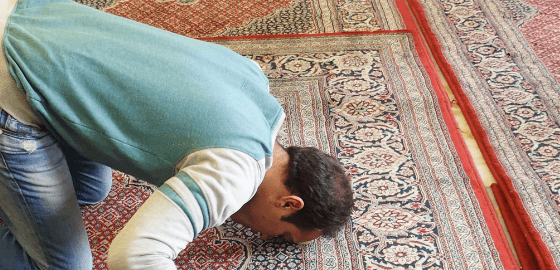Abu Huraira reported Allah’s Messenger (ﷺ) as saying, “A strong believer is better and is more lovable to Allah than a weak believer, and there is good in everyone, (but) cherish that which gives you benefit (in the Hereafter) and seek help from Allah and do not lose heart, and if anything (in the form of trouble) comes to you, don’t say: If I had not done that, it would not have happened so and so, but say: Allah did that what He had ordained to do and your” if” opens the (gate) for the Satan.”
Sahih Muslim 2664
Too many people live off excuses. They make excuses for why their business failed, their marriage failed, or their life sucks. This mindset does not help them in any way. An excuse is just a means of projected responsibility onto someone else. If your failure is the government’s fault, the media’s fault, or society’s fault, then you have an excuse to stay where you are and never advance in life. This mindset is itself a failure and will lead to nothing but more failure.
To succeed at anything, a man must take complete ownership of his choices and their consequences. He must own his decisions, own his mistakes, own his experiences, and own his consequences. It is only when we start taking ownership of these things, we do that we truly grow and mature. Maturity comes from understanding your mistakes and learning from them. Wisdom comes from making mistakes and never repeating the same mistakes. Growth comes from trying new things even if you fail at them. Success lies on the other side of ownership, to succeed you must take full responsibility.
Qadar is not an excuse
Umar ibn al-Khattab reported that the Messenger of Allah ﷺ said, “If you were to rely upon Allah with reliance due to Him, He would provide for you just as He provides for the birds. They go out in the morning with empty stomachs and return full.”
Sunan al-Tirmidhī 2344
You cannot use Qadar as an excuse to sit around and do nothing. Nobody knows their Qadar, so we all need to go out there and do our absolute best. The result for that day is your Qadar for that day. But you do not know your Qadar for tomorrow, so try again tomorrow and give it your best again. Do this, every single day. Taking ownership for your choices means giving it your best, trying your hardest, being your best, and then accepting what God has written for you for that day.
Take ownership every single day for your choices and actions for that day. Analyse your actions, recognize your mistakes. Learn, improve, grow with each move.
Someone who sits around and just cries about his bad luck will never move forward. His own thoughts and self-defeating beliefs will keep him exactly where he is or pull him further down. To be your best, you must change your mindset. You must approach life with responsibility and optimism.
Optimism is part of faith
Abu Huraira reported that the Messenger of Allah ﷺ said, “Allah Almighty says: I am as My servants expects of Me. If he thinks good of Me, he will have it. If he thinks evil of Me, he will have it.”
Ṣaḥīḥ Ibn Ḥibbān 639
A believer must be optimistic. He must think good thoughts about God and hope for the best. A negative attitude towards life is a negative attitude towards the Creator. The believer views everything in his life as part of God’s Plan. He sees the lesson in every mistake, the growth in every trial, and the blessing in every success. The believer takes full responsibility for his own actions but attributes all success to the Creator. This is part of gratitude and living a life of worship.
Anas ibn Malik reported that the Messenger of Allah ﷺ said, “I am amazed by the believer. Verily, Allah does not decree anything for the believer except what is good for him.”
Musnad Ahmad 12495, Grade: Hasan
Slow and gradual is the surest path to success
Abu Huraira reported that the Messenger of Allah ﷺ said, “Take up good deeds only as much as you are able, for the best deeds are those done regularly even if they are few.”
Sunan Ibn Mājah 4240
There are no guarantees in life besides death. But in business and personal growth, slow and steady tends to win. Too many people look for get-rich-quick schemes and the fastest path to riches. They want shortcuts to good health, piety, and retirement. But life does not work like this. Everything worth having takes a long time and a lot of effort to get hold off.
To be successful at anything, you need to be patient. You need to work hard, piece by piece, every day. You need to be committed to the long run. Your business may not become truly profitable in its first year. Your marriage may not be a dream in the early years. Your children may be difficult to be deal with at certain points in their lives. In every aspect of life, you need to be committed to the long term.
It takes a lot of effort over a long period of time to produce anything great. A great marriage is a result of decades of love and sacrifice. Great children are the result of twenty years of invested parenting. An amazing business is the result of at least a decade of hard work. Even piety is not attained overnight. It takes a lifetime of spiritual growth to become a truly righteous person, and that struggle never ends until we leave this world.
Life is not easy. Embrace that fact. Take responsibility for your actions. Avoid excuses. Be optimistic. And be committed to the long-term in anything that is important to you.






